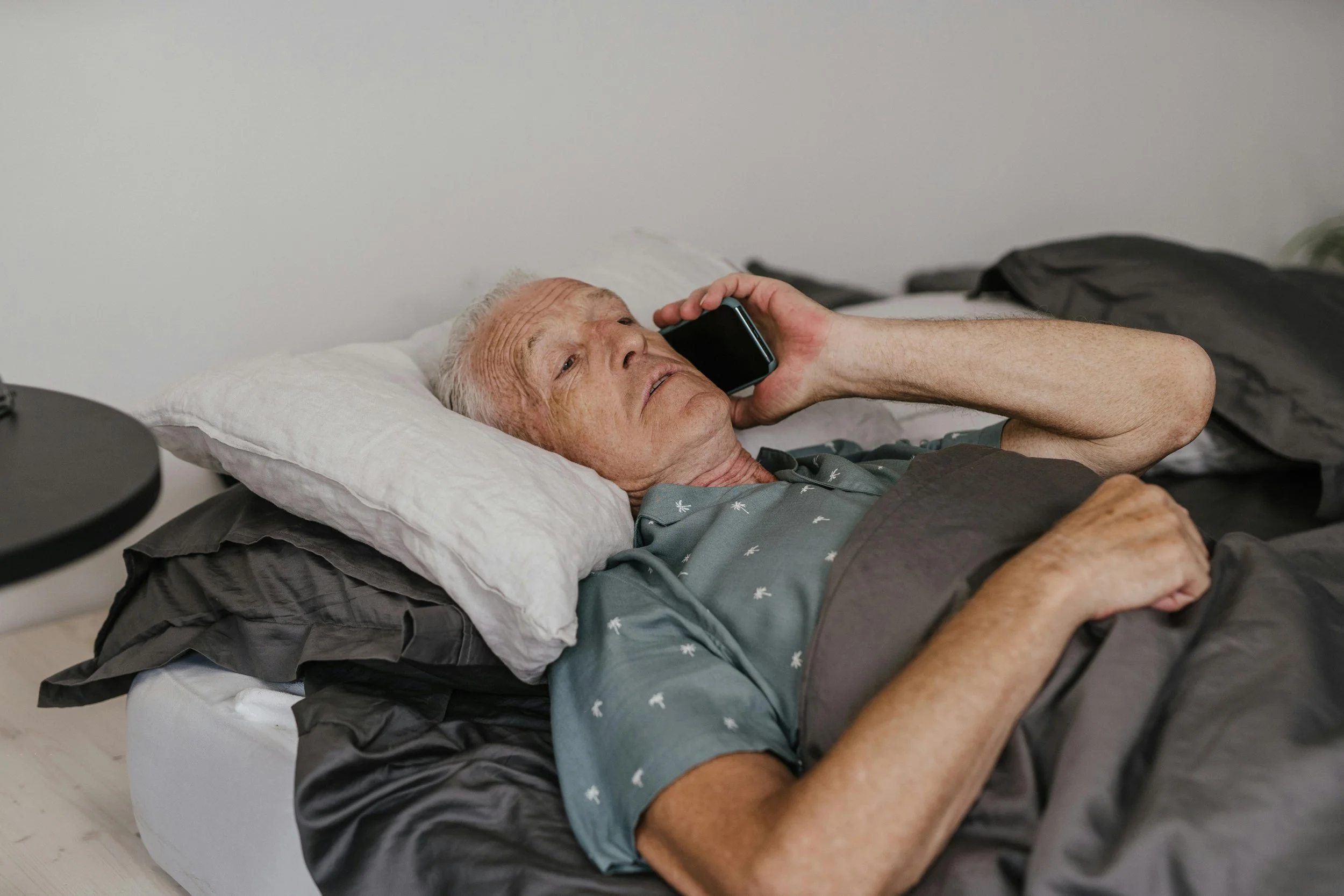Fall Prevention in Ithaca: Simple Habits to Stay Strong, Steady, and Safe at Any Age
1 in 4 adults over 65 falls every year in the U.S.
In Tompkins County, that means thousands of families face the stress, cost, and worry of fall-related injuries, most of which could be prevented.
The good news? Fall prevention doesn’t start at age 65. The habits you build now, whether you’re 35, 55, or 75, can help you stay stronger, steadier, and independent for years to come.
Quick Prevention Checklist:
✅ Walk 10+ min daily
✅ Strength train 2–3x per week
✅ Eat enough protein, calcium & vitamin D
✅ Review medications with your provider
✅ Fall-proof your home
Want a full prevention plan? Book a free consult with Homesteady Health, same-day appointments available.
Why Falls Happen and Why It Matters
Falls rarely have one single cause. More often, several small factors stack up until one slip leads to a major injury.
Common reasons people lose their balance or fall include:
Weaker muscles (sarcopenia): Muscle loss from aging, less activity, or low protein intake.
Thinning bones (osteopenia/osteoporosis): Lower bone density means even small falls can lead to fractures.
Vision changes or medication side effects: Certain prescriptions can affect balance and coordination.
Home hazards: Clutter, poor lighting, or loose rugs make falls more likely.
For many older adults, a single fall can mean weeks in the hospital, surgery, or long-term mobility issues. That’s why prevention matters, before the first fall happens.
How Doctors Check Bone and Fall Risk
Two simple tests help measure bone strength and fall risk:
DEXA Scan: A low-dose X-ray that shows bone density and helps detect osteopenia or osteoporosis early.
FRAX Score: Estimates your 10-year risk of major fractures based on age, bone density, and other factors.
Knowing your numbers helps you and your healthcare provider build a plan to stay strong and safe.
5 Habits to Lower Your Fall Risk
✅ Walk daily: Even 10 minutes a day makes a difference.
✅ Strength train 2–3 times per week: Keeps muscles and bones strong.
✅ Get enough protein: Aim for 60–90g a day unless told otherwise by your provider.
✅ Check your vitamin D and calcium: Both matter for bone health.
✅ Make your home safer: Remove loose rugs, improve lighting, use non-slip mats.
Falls aren’t inevitable. Take control of your health today. Book your free consult with Homesteady Health in Ithaca or Trumansburg and get a personalized prevention plan.
Balance and Mobility Tips
Simple exercises you can do at home:
Sit-to-stand from a chair (10 reps)
Heel-to-toe walking
Balancing on one foot
Gentle yoga, Tai Chi, or water aerobics for flexibility and stability
Why Homesteady Health Makes Prevention Easier
At Homesteady Health, we believe prevention shouldn’t be complicated or expensive. Our Direct Primary Care membership gives you:
Same or next-day appointments when you need them
Longer visits to talk through prevention plans
Bone density referrals and fall-risk screenings
Medication reviews to catch side effects before they cause problems
Support for exercise, nutrition, and healthy aging habits
We help you take control of your health before problems sneak up on you.
Take the First Step Today
With the right habits, and the right healthcare team, you can stay steady, independent, and confident at any age.
Book a free consult with Homesteady Health in Ithaca or Trumansburg to learn your personal fall risk and start building your prevention plan today.
FAQs
What age should I start worrying about falls?
Prevention can start at any age, but most people begin noticing balance or strength changes in their 40s and 50s.
Does Homesteady Health offer bone density scans?
We can refer you for scans and help interpret the results as part of your prevention plan.
Can you help with exercise or nutrition planning?
Yes. Our team provides guidance on strength training, supplements, and daily habits to support bone and muscle health.



